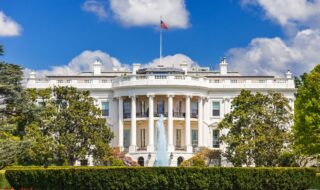January 11, 2024 Last Edit: July 19, 2024
Small and main street businesses drive our local economies.
>>Download the NFIB 2024 Main Street Agenda for Illinois<<
Small and main street businesses drive our local economies. In Illinois, 88 percent of businesses have 19 or fewer employees and 96 percent have less than 100 employees. These same employers employ over 1.6 million employees.
Small businesses are owned by our neighbors, our friends, and our family members and include florists, bakers, landscapers, musicians, caterers, manufacturers, builders, retailers, web designers, photographers, etc. These men and women take risks, invest their time and money, and build the American dream for themselves and their families and, in the process, provide economic vitality and services to their communities.
Unfortunately, policy makers often fail to take adequate account of small businesses’ contributions to our local communities and load them down with taxes, red tape, and onerous regulations. In recent years, poor policy choices in Springfield have resulted in higher taxes, forced closures, and burdensome regulations for small businesses across the state.
With the Illinois General Assembly set to reconvene on January 16, NFIB will continue to advocate on behalf of Illinois job creators and small businesses, particularly focusing on the following areas:
Protect Employers from Onerous New Mandates
Over the past few years, the Illinois’ government has increasingly inserted itself into the employer-employee relationship, micromanaging all aspects of the workplace. Wages, leave, COVID-19, scheduling—the government has adopted one-size-fits-all policies that penalize job creators across the board and that often put small businesses at a disadvantage compared to their larger competitors.
NFIB is committed to opposing additional harmful mandates on small businesses. In other states, activists and special interests have recently put forward new regulations restricting employers from freely communicating to their employees (employer gag laws) and limiting the ability of employers to put in place training agreements to retain employees trained at the employer’s expense. Some states have explored or implemented costly new provisions mandating paid family medical leave, so-called “predictive scheduling,” and increased industry-specific or tipped-worker minimum wages.
These mandates fall particularly hard on small businesses. In Illinois, 64 percent of businesses have less than five employees. Eighty-eight percent have 19 or fewer employees. Small employers like this often lack the necessary administrative overhead to navigate the bevy of new regulations and mandates handed down by Springfield. NFIB will oppose legislation that imposes costly new mandates on small employers or that micromanages the relationship between job creators and employees.
Fight for Tax Relief
With the winding down of the COVID-19 stimulus windfall, the Pritzker Administration is projecting years of fiscal deficits in Illinois. Higher spending combined with lower revenues could put pressure on the state’s budget.
As budgetary pressures increase, NFIB will fight to ensure that small business owners and their communities are not forced to pay the price for the state’s poor fiscal decisions. It will also continue to advocate on behalf of overdue tax relief for small, family businesses.
Illinois is one of twelve states that imposes an estate tax. Out of these twelve states, Illinois has one of the lowest estate tax exemptions. The Illinois estate tax exemption hasn’t kept up with inflation and, at $4 million, is less than a third of the 2024 federal exemption of $13.61 million. The valuation of many small, family-owned farms and businesses is comprised of non-liquid property, equipment, and market share. As such, they often lack the cash necessary to cover Illinois’ exorbitant estate tax, potentially forcing them to sell land, equipment, or even the business itself to pay the taxes.
NFIB continues to work with members of the Illinois General Assembly to align Illinois’ estate tax exemption with federal law to provide needed relief to family-owned businesses across the state. Failure to raise this exemption could result in the liquidation of family farms and businesses upon the death of the owners, reducing local ownership of land and commercial enterprises.
Safeguard the Unemployment Insurance Trust Fund
NFIB successfully fought for the state to make good the COVID-19-driven unemployment insurance (UI) trust fund deficit, staving off significant—though not all—payroll tax increases for Illinois employers. But the unemployment insurance program continues to face threats to its ongoing stability and sustainability.
Even as states across the nation—such as Illinois—worked to stabilize their UI trust funds, some activists have already begun to push new and costly unemployment obligations that could undermine not only the fiscal wellbeing of the unemployment programs, but also their central purpose of providing temporary assistance to laid-off workers as they seek new employment.
As the unemployment program in Illinois is funded through taxes on employers, NFIB will monitor any program or policy changes that would increase this tax burden on job creators and small businesses.
Oppose Backdoor Attempts to Use the Bureaucratic Process to Impose Additional Mandates on Job Creators
Last year, the General Assembly passed and the governor signed costly new mandates on small businesses, most notably the Paid Leave for All Workers Act and changes to the Day and Temporary Labor Services Act.
NFIB opposed both. They were, however, pushed through the General Assembly. The Pritzker Administration then proposed rules to guide businesses as they implement the new requirements. The proposed rules further illustrate the shortcomings of the new mandates and statutory language. NFIB submitted written comments to the Department of Labor, contesting the proposed rules. NFIB contended that the Department of Labor had exceeded the statutory mandate, failed to follow legislative intent, and did not provide clear and consistent guidance.
NFIB will continue to monitor and engage the rule-making process to prevent bureaucratic excesses and to clean up ambiguous provisions. It is also exploring opportunities to pursue clean-up legislation to clarify confusing language in the original legislation and limit the negative impact on small businesses.
NFIB is a member-driven organization advocating on behalf of small and independent businesses nationwide.
Related Articles













